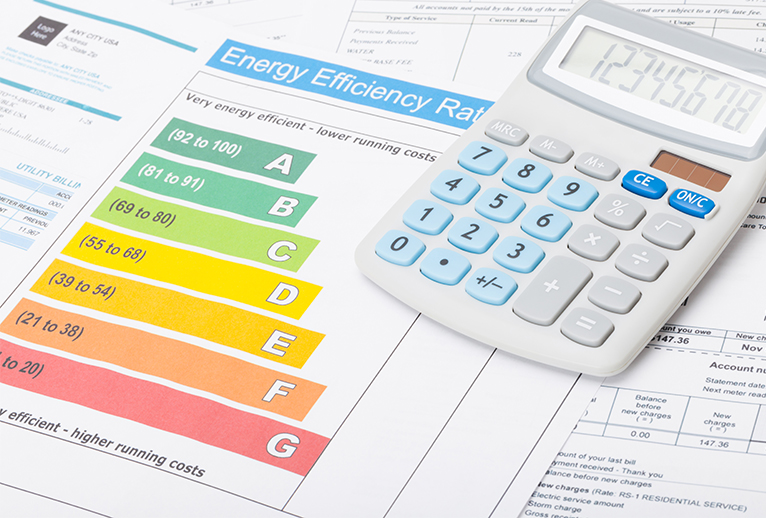Most new homes now rated as highly energy efficient
- Over 80% of new homes in England and Wales now have a top efficiency rating.
- The number of domestic Energy Performance Certificates lodged in England and Wales has also increased by 10%.
Energy efficient homes are now more common across the UK, as new government data reveals that 84% of new homes in England were given an A or B energy efficiency rating from October to December 2020. This is a 5% increase on the same period of time in 2019.
Similarly, 87% of new homes in Wales were given an A or B energy efficient rating from October to December 2020.
How do Energy Efficiency Ratings (EERs) work?

An energy efficiency rating measures how well a home uses energy. The ratings range from A: the most efficient, to G: the least efficient. The higher the rating, the less energy the home wastes. That means it should have cheaper energy bills and less of an environmental impact.
The average energy efficiency rating for a UK home is D.
EERs are shown on a colour coded scale, similarly to how they’re shown on energy labels for home appliances.
Domestic Energy Performance Certificates (EPCs)

The data also shows that from October to December 2020, 10% more EPCs were lodged in England, and 14% more in Wales, compared to the same period in 2019.
A domestic EPC:
- Estimates how much it costs to heat, light and provide hot water for a home.
- Recommends things you can do to reduce your energy bills.
- Shows the home’s energy efficiency rating.
When you’re comparing homes to buy or rent, you can see each home’s EPC for free on Gov.uk. Plus, the seller, landlord or letting agent must show you the EPC of a home you’re looking at.
How to make your home more energy efficient

Towards the end of 2020, the government launched a new digital service to help homeowners find an EPC assessor. An accredited EPC assessor will give you personalised advice on how to improve the energy performance of your home. You can access the service on Gov.uk.
Some of the best ways to reduce your energy bills and cut your carbon footprint include:
- Installing home improvements that reduce the amount of heat lost from your home. Your options range from cheaper fixes like draught proofing, to bigger projects such as insulating your walls and roof.
- Upgrading to a low-carbon heating system, like a heat pump, from a fossil fuel heating system (like a gas boiler).
- Generating electricity for your home using solar panels or wind turbines.
Check out more ideas to make your home energy efficient on our Homeowner Advice Centre.



